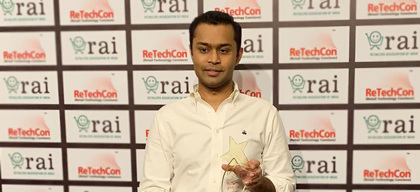In defense of HR

Employment & HR
331 week ago — 6 min read
Summary: The Human Resource (HR) department in an organisation is primarily responsible for recruitment, employee training, development, compensation, safety and health. The backbone of any organisation is its human resource and therefore the role of the HR team is vital for the overall efficiency and management of staff. However, in recent times, the importance and relevance of the HR department is increasingly questioned. Rajeev Peshawaria shares some insightful tips on how to cultivate an effective HR department for your business.
"A general consensus persists among business leaders that the HR profession has so far fallen short of making a real impact." – Korn Ferry
"Last year, we identified that HR had done a good job of managing its budget, but was not improving impact to the business or employees." – PwC
"Maximising the effectiveness of the HR function can increase business unit revenue and profit by up to 7% and 9%, respectively. But the majority of HR Transformations fail. HR effectiveness has declined 8% over the past three years, and HR lags all other functions with only 15% of its high performers capable of succeeding in today’s dynamic, complex work environment." – CEB Gartner
"I love my HR guy, but boy, I hate HR!" – A Fortune 500 CXO.
These are just a few statements I could pull within five minutes of googling “HR Effectiveness.” I did not even go to the second search page. This quick search confirmed what I’ve experienced in my interactions with business executives and consultants. There is no dearth of so called experts telling the HR professional community how bad it is, and how it needs to really “understand the business” and become a “strategic business partner.” Complaining about the incompetence of HR, and preaching to them about how they need to be more relevant to the business has become a favourite pastime of executives and employees worldwide.
Lately, this trend seems to be gathering even more steam. As scores of business executives increasingly find themselves out of jobs thanks to the nature of today’s economy, many turn to becoming consultants, citing their “decades of business experience.” And many find it convenient to teach HR what (according to them) HR doesn’t know. It doesn’t matter if these executives have no proven track record as great business leaders themselves, they are quick to teach HR.
Frankly, I am getting tired of this endless HR bashing.
Yes, it is true that HR professionals must ask themselves how effective their practices have been in the past, how the world is changing, and what they need to do to be relevant and effective. But business leaders need to understand one thing too: You get the HR you ask for and cultivate. If you look at HR simply as an admin function, then that’s what you’re going to get. If you look at HR as incapable of contributing to strategic growth, then that’s what you’re going to get. If you look at HR as someone who does the dirty work of firing difficult people and cleaning up messes, then that’s what you’re going to get. In short, you need to play your part if you want a strategic partner in HR.
The old economy was powered by competitive advantage created by intellectual and financial capital. Those that had better access to knowledge or money thrived more than others. Today, both knowledge and money are freely available – it is your people that make a difference. So, to begin with, as a CXO you must demand and expect strategic partnership from HR. Ask how you will turn your people into your biggest competitive advantage and involve HR in direction setting, decision making, and execution. CEOs like Travis Kalanick of Uber and Oscar Munoz of United Airlines don’t seem to understand this; and have destroyed significant value for their organizations. Smart CEOs use HR as an equal partner in shaping the success of their organisation. Google, Netflix, Salesforce, Boston Consulting Group, Mayo Clinic and many others get it. They understand how important HR strategy is to their business success; and do what they need to do to develop strategic partnership capability within their HR department. In other words, they get the HR they ask for and cultivate!
So how can you cultivate the right HR in your organisation as a CXO? Here are a few tips:
1) Clearly define the role your human capital (employees) play in the success of your business:
i) What capabilities must all employees exhibit?
ii) How to build (or buy) those capabilities?
iii) What values should define your culture?
iv) What financial and non-financial reward systems must be in place to enable desired behaviour?
2) Clearly define what you need from your HR Head and the function in general.
3) Find the right HR head – yes, there are plenty of smart, strategic people available. You just have to find them; and be willing to pay what it takes to attract the best of the best.
4) Hold HR to high standards of strategic contribution. Expect them to perform.
So, the next time you find yourself cursing how bad your HR department is, ask yourself: What do I need to do to get the right HR function? If you really want to succeed, make sure that your answer is 100% honest, and that your own behaviour and thinking is not part of the problem. As they say, it takes two hands to clap.
To explore business opportunities, link with me by clicking on the 'Invite' button on my eBiz Card.
Article source: https://iclif.org/articles/in-defense-of-hr/
Disclaimer: The views and opinions expressed in this article are those of the author and do not necessarily reflect the views, official policy or position of GlobalLinker.
Network with SMEs mentioned in this article
View Rajeev 's profile
SME Inspirations
Other articles written by Rajeev Peshawaria
Let the cream naturally rise to the top
275 week ago
The other duty of corporate governance
280 week ago
Most read this week
Trending
Ecommerce 4 days ago
















Comments (1)
Please login or Register to join the discussion